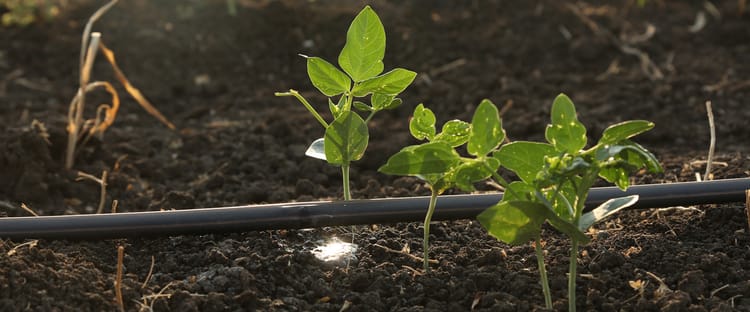Sustainable Agriculture: Embracing Local for Global Impact
Industrialized farming has allowed us to achieve large-scale food production at low costs, distributing it efficiently across the globe. However, this approach is proving unsustainable in the face of climate change, transportation challenges, and a growing population. Agricultural practices account for a significant 70% of global freshwater withdrawals and contribute to land and soil degradation (¹) . The emerging trend of growing food locally offers a solution to these challenges by shortening supply chains, reducing transportation costs, and minimizing carbon footprints.
“To prevent the impacts of conflict on food insecurity, we must increase sustainable productivity; strengthen capacities to deliver relevant services and commodities; and provide access to innovative financial tools and digital services.” (²) FAO Director-General Dr QU Dongyu
While the concept of sustainable agriculture gains momentum, not all farmers have adopted these practices, and policymakers often overlook nature's role as a valuable resource. Sustainable agriculture prioritizes local food production, consumer needs, labor conditions, and efficient resource usage to maximize yields. By working in harmony with nature, sustainable farmers ensure fresh produce that is not only environmentally friendly but also profitable. Techniques such as using nitrogen-fixing plants, natural predators instead of pesticides, crop rotation, and drip irrigation help minimize water and energy consumption.
Sustainable Agriculture Open Field
In open fields, farmers can transition from using fertilizers to nitrogen-fixing plants, replace aggressive pesticides with natural enemies, adopt crop rotation to preserve soil health, and employ drip irrigation to significantly reduce water usage. Depending on the crop grown, drip irrigation is a technology that can reduce water consumption by 20-40% while increasing crop yield by 20-50% compared to flood irrigation. (³)
Sustainable Agriculture Greenhouse
Dutch horticulture and greenhouse practices offer a sustainable solution for local food production, optimizing yield and affordability. Greenhouses use less water, pesticides, and fertilizer than conventional agriculture, have a higher yield per area, and can operate on renewable energy, making them CO2-neutral.
“Dutch greenhouse practices and the study of plant growth can be utilized for local food production, optimizing output and affordability. Greenhouses can operate on renewable energy, providing organic food in a CO2-neutral manner.” Olaf Mos, Commercial Director Gakon Netafim greenhouse projects.
Compared to conventional agriculture, greenhouses prove to be more sustainable by conserving water, using fewer pesticides and fertilizers, and offering higher yields per unit area. Furthermore, they enable year-round food production, exemplified by Dutch greenhouse-grown tomatoes, an emblematic export product. Embracing sustainable practices and local production is a transformative step towards a resilient and thriving global agricultural landscape.


